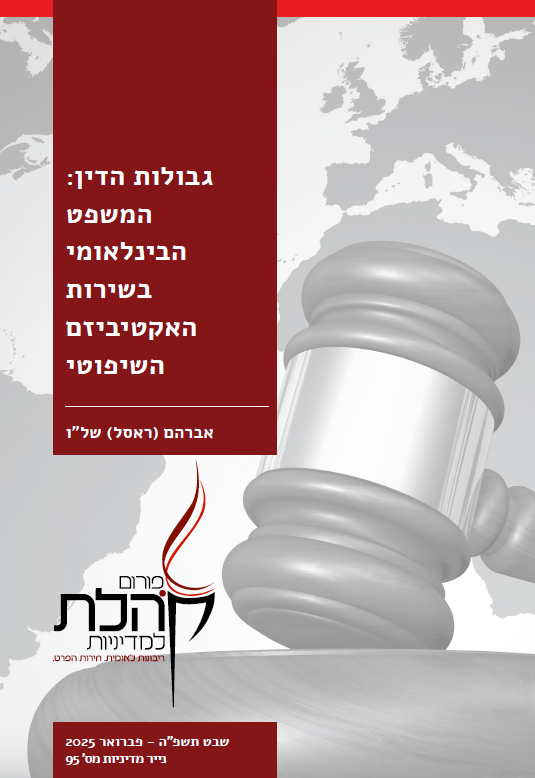A new research paper by Adv. Avraham Russell Shalev analyzes the way international law is being used by the Supreme Court to overrule the Knesset.
Executive summary:
- International law suffers from acute democratic deficit: despite not being created by the people and their representatives, states are still obligated to comply. Jurists play a pivotal role in “recognizing”, i.e., creating, international norms, thereby granting them the outsized power to create binding norms that would not necessarily stand the test of the ballot box.
- The very existence of international custom, one of international law’s primary sources, is extremely vague. Jurists “recognize” binding customs that often reflect a law they view favorably rather than the actual custom in practice.
- Beyond treaties and customs, there has been an expansion of “soft law”- UN declarations and resolutions, and other international organizations’ guidelines and policy papers. Although soft law has no binding authority, and despite the fact that these organizations are not accountable to the citizens of any state, countries tend to fall in line and courts adopt its content.
- Israel has, as do most other states, a dualistic system which separates domestic and international law. And as in other common-law states, customs are automatically absorbed into Israeli law. In contrast, international treaties have no legislative validity in Israel until they have been ratified by the Knesset. In recent years the Supreme[?] Court has interpreted laws according to a “presumption of conformity”, in other words, in a way that is consistent with international law, thus eroding the dualistic system. Furthermore, Justices in many cases invoke vague sources that are not binding as valid legal sources, in order to create new laws disguised as an incorporation of international law.
- The rule of interpretive alignment exists in most judicial systems, but it is utilized excessively in Israel, where courts reference international law to change existing legislation. Worse, the Court relies on interpretive alignment to intervene in budgetary considerations and security and immigration issues.
- Traditionally, explicit legislation by the Knesset supersedes international law; however, in practice, this supremacy is contested. According to the dissenting opinion of Supreme Court Justices, legislation that contravenes international law does not align with the State of Israel’s principles. International law has similarly been invoked by the [legal counsel apparatus] [the AG’s office] as a form of “legal impediment” to promoting legislation.
The expanded reliance on international law, taken together with other judicial activism trends, escalates the transformation of Israel from a democratic regime into a juristocracy. Therefore, the increasing reliance of Israeli courts on international law should be a matter of concern to anyone who cares about representative democracy.
See the full paper [Hebrew]




